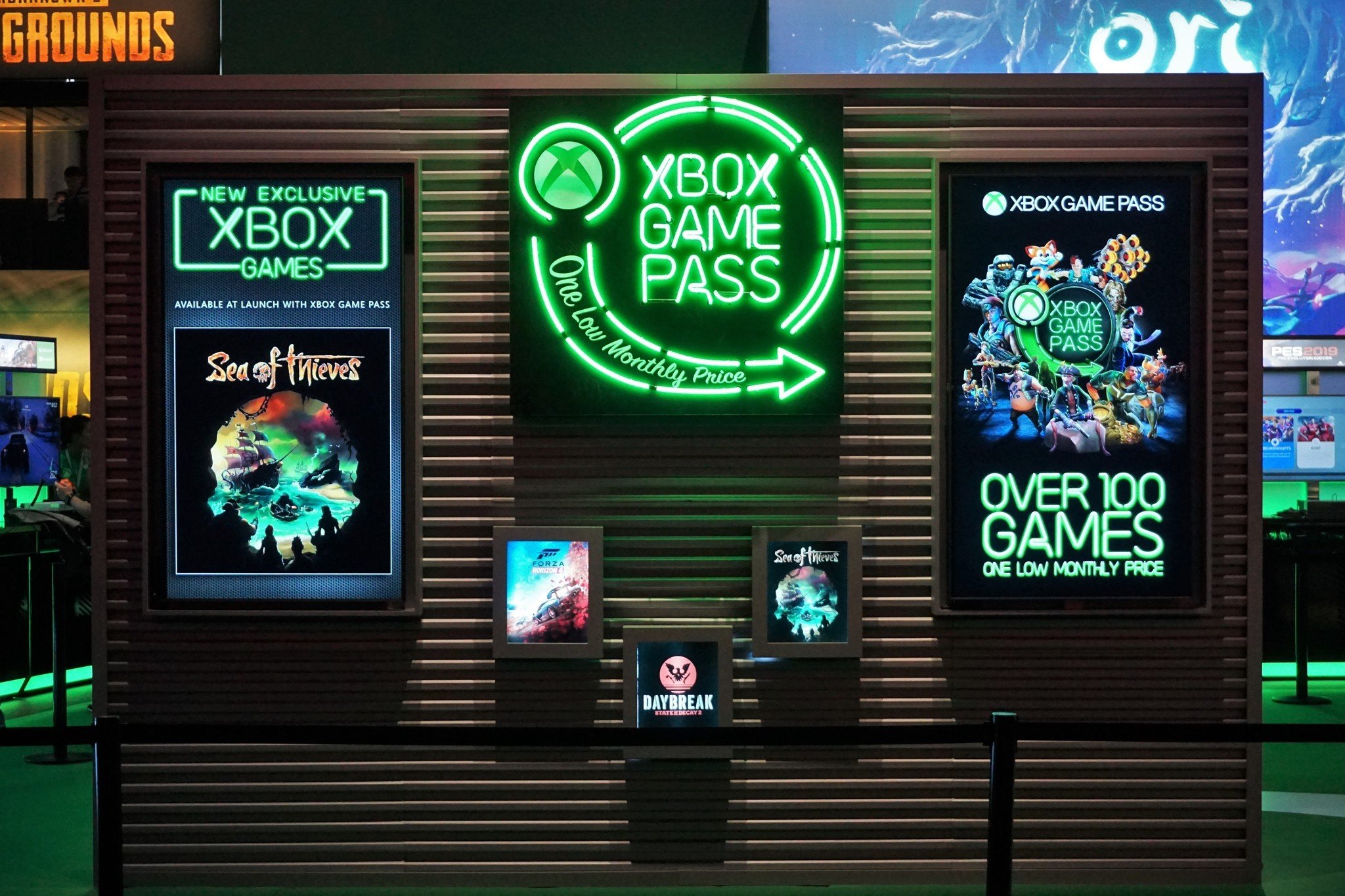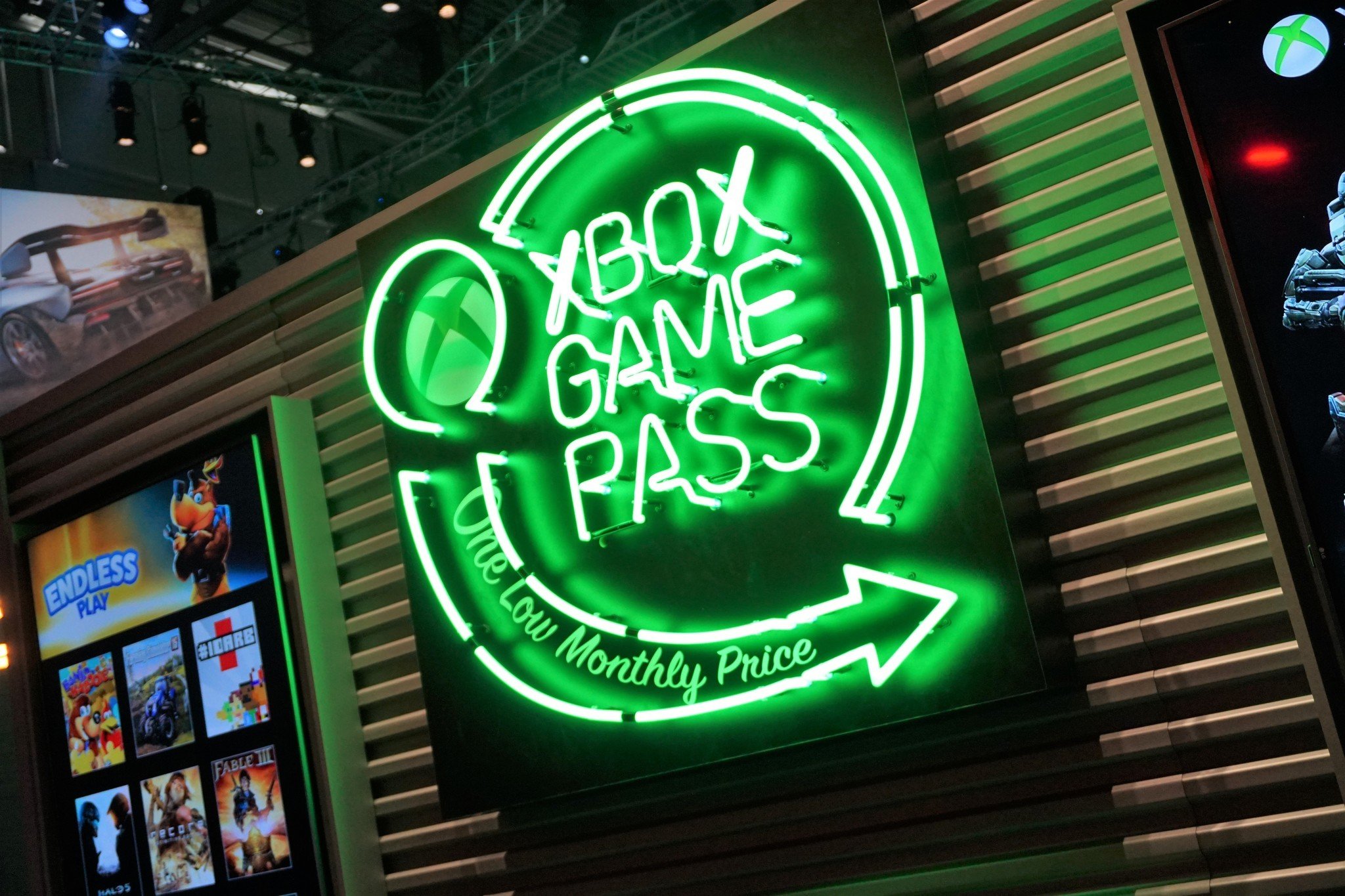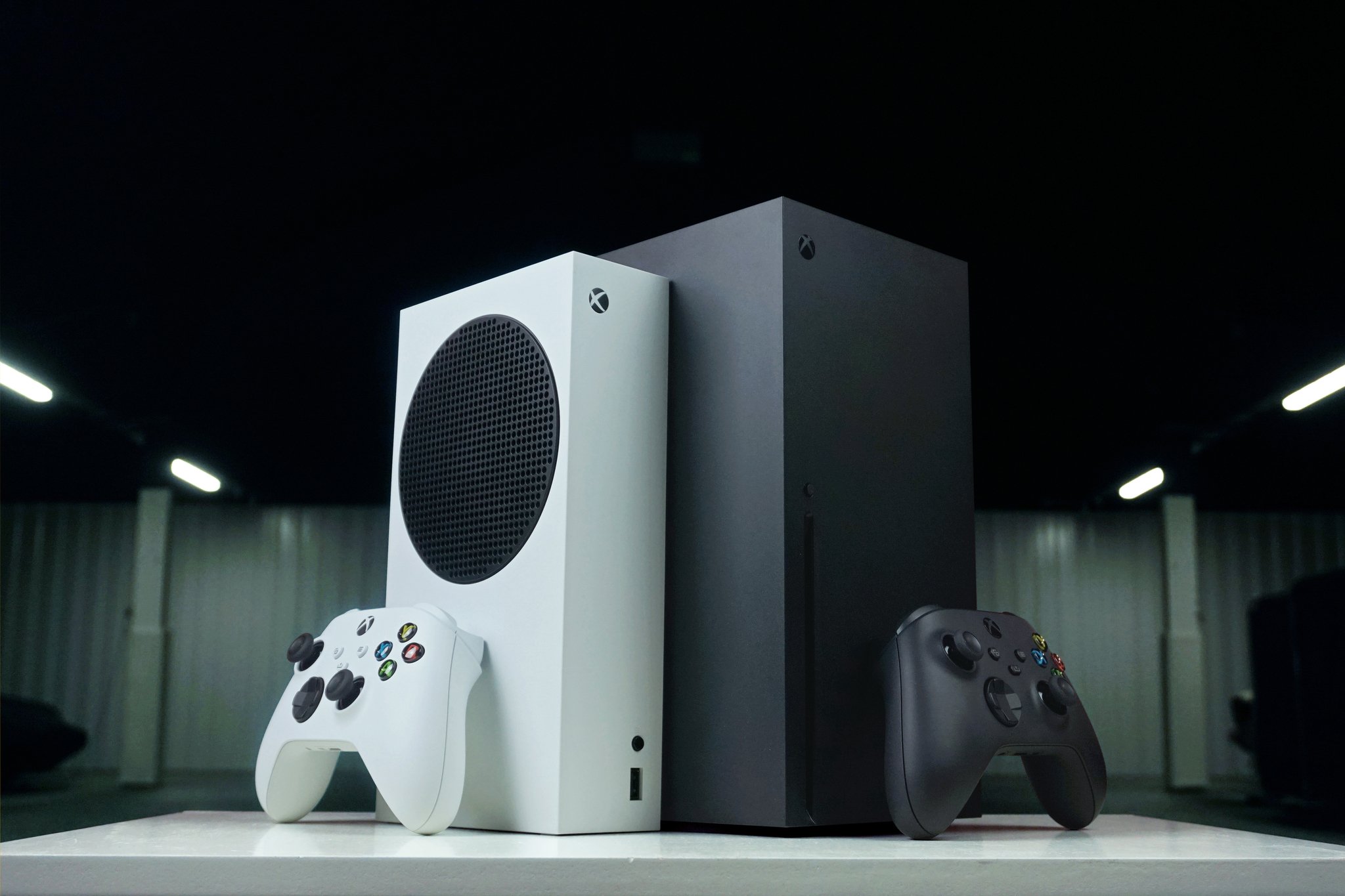Xbox Game Pass is Microsoft's biggest consumer opportunity since Windows itself
Xbox Game Pass is a big deal, and the industry is only just starting to realize.

All the latest news, reviews, and guides for Windows and Xbox diehards.
You are now subscribed
Your newsletter sign-up was successful
With E3 2021 largely over with as I write this, there's one thing that stands out in my mind above all other things, and that thing is Xbox Game Pass itself. There are dozens of amazing games on the horizon, and you can see them in our best E3 2021 games roundup here. As I found myself putting together that list, it dawned on me: most of these amazing-looking upcoming games aren't going to cost me $70 apiece, they're going to cost me just $15 a month. Over time, the saving is truly absurd.
The true genius of Xbox Game Pass is how much of a win-win-win it is from every angle, the consumer, the developer partners, and Microsoft itself, as the Xbox division spent much of last gen struggling to find its identity in a rapidly changing consumer landscape. Xbox lead Phil Spencer's sweeping reforms have brought about real, tangible change for Xbox's fortunes, and crucially, given it a recipe for global expansion that will see it break free of the confines of the traditional console market.
This is why I firmly believe that Xbox Game Pass is Microsoft's biggest consumer-oriented opportunity since Windows itself.

Hundreds of games, anywhere you want
Xbox Game Pass gives you access to hundreds of games for a low monthly fee. PC and console versions set you back $10 a month, or you can go all-in and include both, as well as Xbox Live Gold multiplayer, and cloud streaming for $15 a month.
A win-win-win

The truly mysterious thing about Xbox Game Pass, at least as of right now, is that there seems to be no downside whatsoever, for anyone involved. There could be a point in the future where consumer habits around Game Pass evolve in unexpected ways, but right now, it seems Microsoft has built a product that is providing huge benefits for developers and itself, while bringing heaps of value to consumers.
Xbox Game Pass costs $10 at base, with a $15 dollar version netting you Xbox Live Gold multiplayer and cloud streaming access, among other perks. The subscription provides users with well over 300 titles at this point on an all-you-can-eat basis. Many of those titles are permanent fixtures in the service too — akin to Netflix Originals — from Microsoft's home-grown studios and partners. Microsoft recently spoke about how it plans to boost its exclusive offering too, via further studio acquisitions and investment in its current stable.
How does Microsoft realistically balance all of this on the basis of a $10 monthly subscription? The answer to that can be found in reported user habits from Game Pass members. Despite having dozens of games to play a la carte, Microsoft reports that Game Pass users are up to 40% more likely to purchase games outright, buy DLC, and engage other systems and services on the Xbox platform. Microsoft describes engagement as its key performance indicator (KPI) to investors, which essentially translates into currency for the business. A user within the ecosystem, whether in Xbox Game Pass or not, is more likely to engage with other services and systems that generate revenue. They might buy or rent a movie from Xbox Live. They might grab microtransactions using the exclusive Game Pass discounts. And crucially, they often buy more games than non-Xbox Game Pass members as well, despite being invested in the service.
Source: Xbox Game Studios / Rare, 343 Industries, Playground Games | YouTube, and Bethesda
All the latest news, reviews, and guides for Windows and Xbox diehards.
For developers, an engaged user also translates into cash. Access can produce viral marketing for a game that otherwise might not have it. For every user who doesn't pay, there might be several others who do buy things through their games, whether it's an in-app purchase or even merchandise. The engagement-led economy is far more complex and nuanced than the simple measurement of "X subscriptions per month," because those users drive a halo effect over the entire ecosystem, for Microsoft and for developers.
The value of Xbox Game Pass has become unquestionable.
The ease of access to Sea of Thieves via Xbox Game Pass has been cited as a reason for Sea of Thieves hitting the top spot on Steam for several weeks when it launched at retail, despite being available for cheaper as part of the monthly subscription. Xbox Game Pass is functioning as a discovery engine right now, and while there might come a time when people realize en masse they don't have to buy these titles at retail anymore, at least for now, Game Pass seems to be boosting sales across the board, rather than hindering them.
The value of Xbox Game Pass has become unquestionable, even to the most negative media and commentators. You cannot argue against the value of Xbox Game Pass in good faith. Paying $120 a year gets you access to hundreds of the best Xbox games, and all of the Xbox exclusives on day one. Competing platforms are offering their games at $70 each, which really starts to stack up the more content you try to offer consumers. There's an argument to be made about quality, sure, but after E3 2021, it's becoming hard to argue that Microsoft isn't starting to deliver in this area too.
The internet has generally reacted positively to Microsoft's announcements, with polls on multiplatform outlets largely awarding Microsoft's show A's and B's, across tens of thousands of votes. Halo Infinite's multiplayer trailer became the No. 1 trending video worldwide on YouTube after its reveal, too, with various other trailers hitting over a million views including Outer Worlds 2, Forza Horizon 5, and STALKER 2.
Marrying gaming to the core Microsoft mission

The positive energy from the gaming division's recent moves will help drive interest in its true vehicle for growth: cloud. The console install base is largely static, with the big three fighting over the same pie for the past few decades. With Xbox Game Pass cloud, Microsoft is not only able to expand to new markets and territories where consumer habits aren't console-oriented, but it helps elevate Xbox in the eyes of Microsoft's corporate-level oversight. Microsoft is a cloud-first business, and by linking Xbox to the cloud, gaming lead Phil Spencer and his team have finally managed to get Xbox the investment it has always deserved to reach its true potential.
In a press briefing last week, Microsoft had CEO Satya Nadella himself on camera to discuss how Xbox has become central to Microsoft's mission. Microsoft often speaks about empowering others to do more, and with Xbox, they're putting their money where their mouth is. Many of Microsoft's games showcased at E3 2021 came with creative tools, including Forza Horizon 5 and Halo Infinite, following off Microsoft's lead with the creator tools found in Minecraft. It's systems like these that could inspire the next generation of programmers and creators, through the medium of play. Microsoft touts the fact that its ID@Xbox independent game developers have generated $2 billion dollars in income for themselves since the program began. Those are the kinds of headlines a developer-led business wants to have.
Beyond gaming, Microsoft's acquisitions of late have often come with cloud and creator potential on the side. Microsoft purchased ZeniMax Media for Xbox, for over 7 billion dollars. In that, they grabbed DOOM, The Elder Scrolls, Fallout, and various other IPs into their ecosystem.
They also landed a bunch of powerful technology to boot. The id Tech engine is a legendary platform for building games, with decades of history powering various iterations of DOOM and other games. Microsoft also landed some tech related to cloud streaming, with Bethesda's Project Orion. It's not a stretch to think id Tech and Orion could eventually become part of Azure Game Stack, which has a growing suite of tools that power dozens of high-end gaming experiences across all platforms.
In much the same way Amazon Web Services provides the back-end technology for video streaming platforms like Netflix, Xbox's tools and expertise will continue to build products that Microsoft can bundle into Azure, ensuring that gaming will always get top-level support from the highest echelons of Microsoft corporate.
For the longest time, some of Microsoft's investors pleaded with the company's various CEOs to spin off their gaming business or sell it on. By marrying Xbox more deeply into Azure and its growth, the gaming division ensures a level of recurring investment and support that it has never before received. This is the sort of investment you'd need to go global, and move beyond the console install base that has remained relatively static in a gaming landscape dominated by PC and mobile. Regardless of that fact, though, Xbox console players stand to reap some of the biggest benefits.
The biggest winners are gamers

Rather than building Xbox Game Pass' cloud offering as a separate platform, Phil Spencer and his team had the presence of mind to craft a cloud platform that is based on the regular home Xbox. The server blades that make up Xbox's cloud gaming platform are literally made of Xbox home console hardware. If a developer makes a game for the cloud, they first have to make it for your home Xbox, and vice versa. If you needed further evidence, Xbox lead Phil Spencer said explicitly that consoles will always have a place during last week's E3 2021 press briefing.
The returns will fund even more games, even more exclusives, and even more technological innovation.
This anchors Xbox's console growth to the cloud market, targeting low-power PCs and phones. There are economies where people often don't even have televisions, giving Microsoft a chance to bring fun, collaboration, and relaxation to many millions of more gamers, beyond the oft-simplistic games we associate with mobile phones and small screens. The addressable audience beyond the console market moves from 300 million to 3 billion potential customers, and Microsoft is the only company well positioned to make this leap. The product under Microsoft's belt that can boast an install base in the billions is Windows itself. If they did it once, they can potentially do it again.
Making that leap will require even more investment to grow out the cloud business, leading to more variety for current Xbox customers, along with more value, and more high-quality games. It drives Microsoft to try new things, it drives them to be more inclusive, and invest in accessibility technology. The returns will fund even more games, even more exclusives, and even more technological innovation, too. The rewards are already being reflected in Xbox's financials. And this is just the tip of the iceberg representing Xbox's slumbering potential that a perfect storm of leadership vision, and cloud tech advancement is making possible for the first time.
These investments in content should have happened years ago, and it has been an extremely long time coming. But regardless of the wait, it will ultimately be worth it. The future is brighter for Xbox than it has ever been before, and somehow more affordable than ever before, while also being more profitable than ever before. How Xbox managed to create this win-win-win scenario for devs, Microsoft's internal politics, and consumers simultaneously seems almost impossible. Alas, here we are.

Jez Corden is the Executive Editor at Windows Central, focusing primarily on all things Xbox and gaming. Jez is known for breaking exclusive news and analysis as relates to the Microsoft ecosystem — while being powered by tea. Follow on X.com/JezCorden and tune in to the XB2 Podcast, all about, you guessed it, Xbox!




